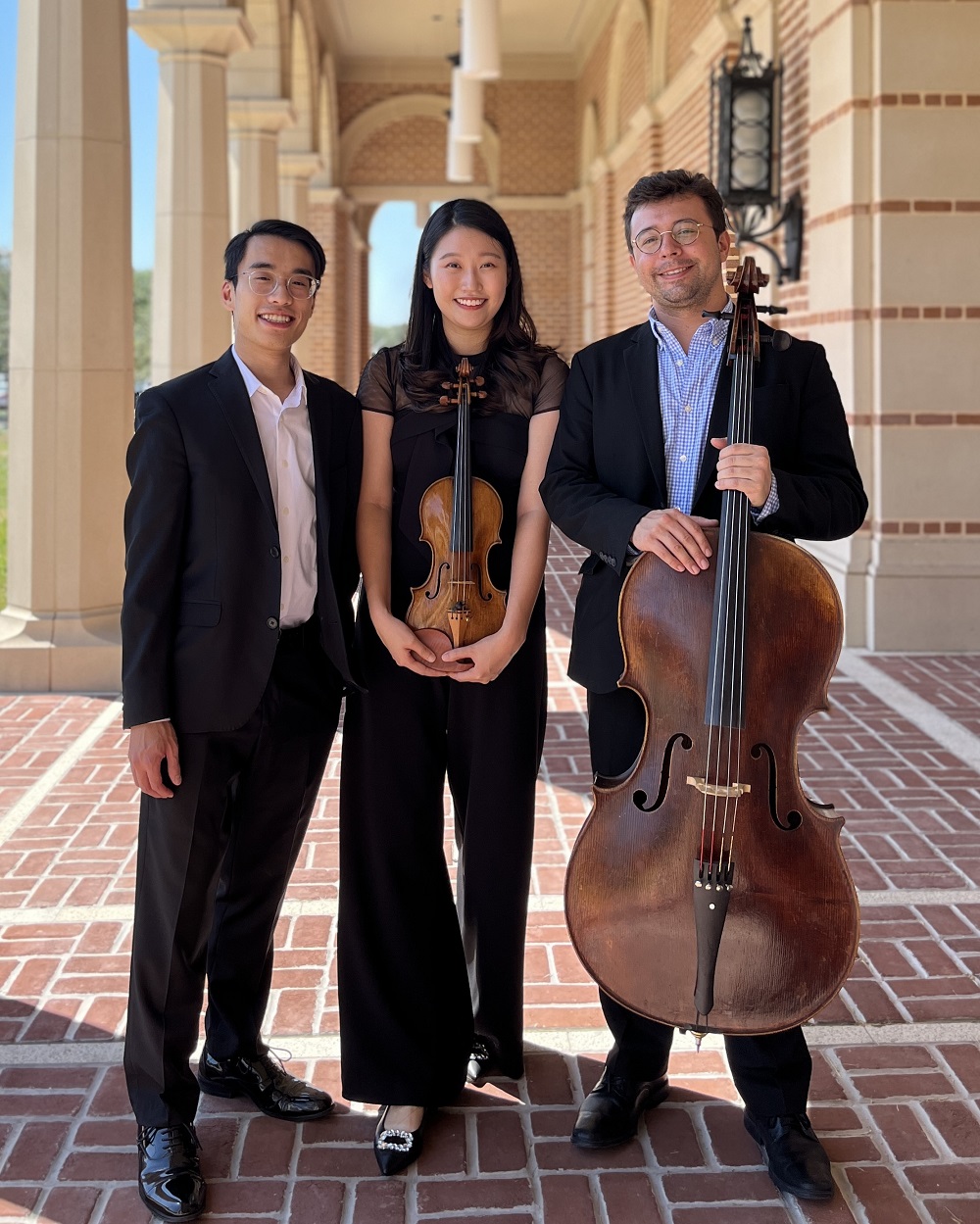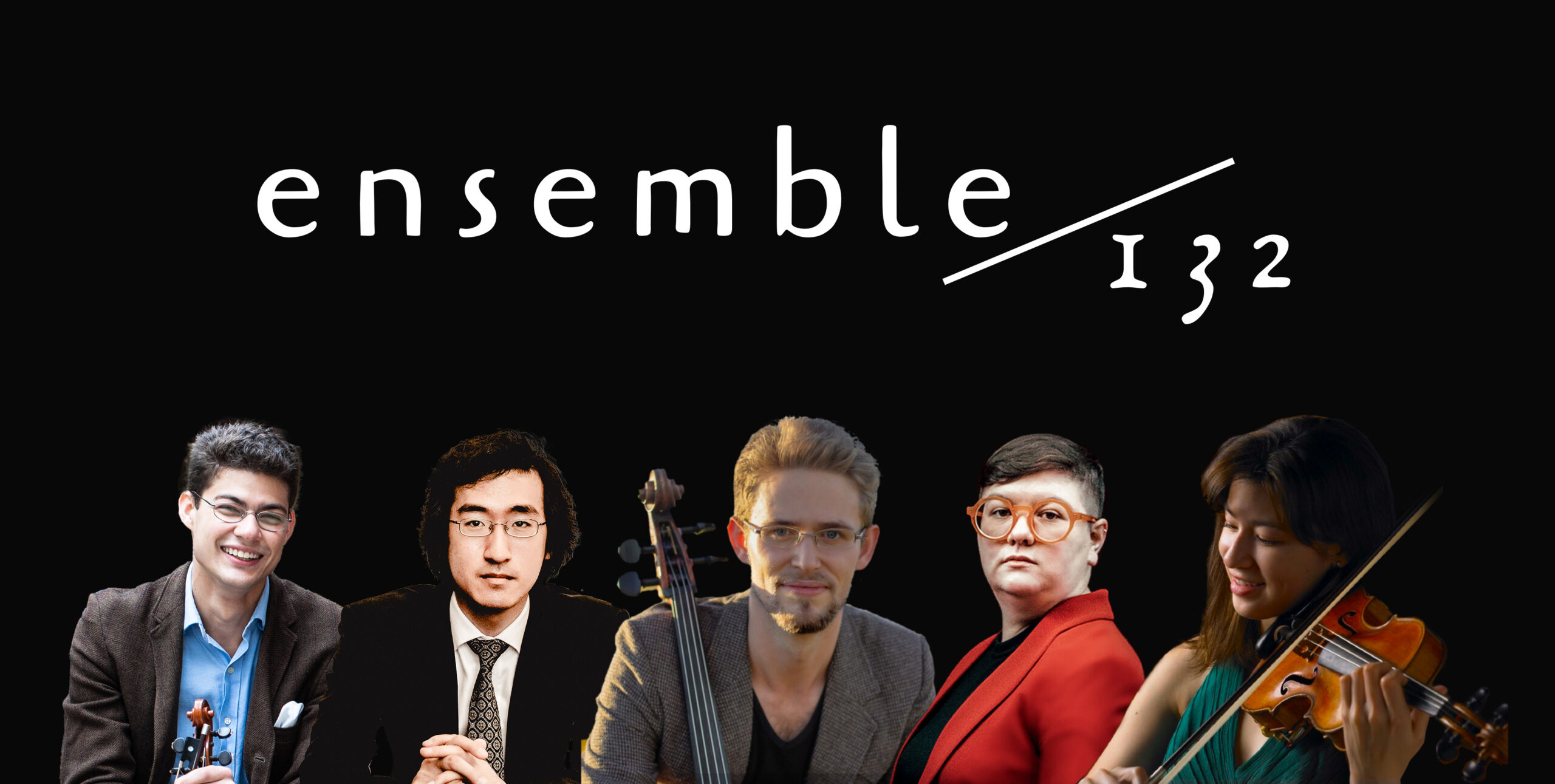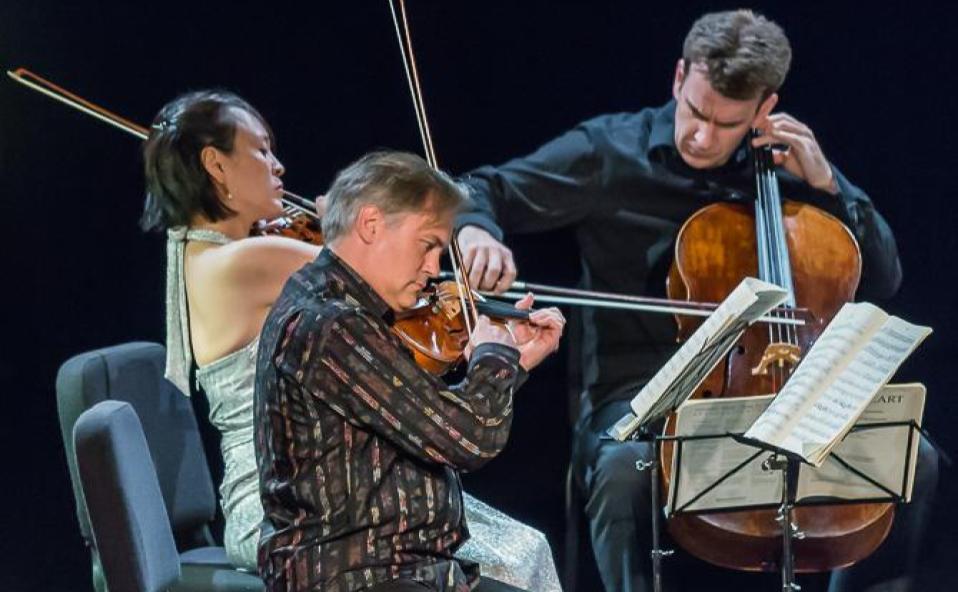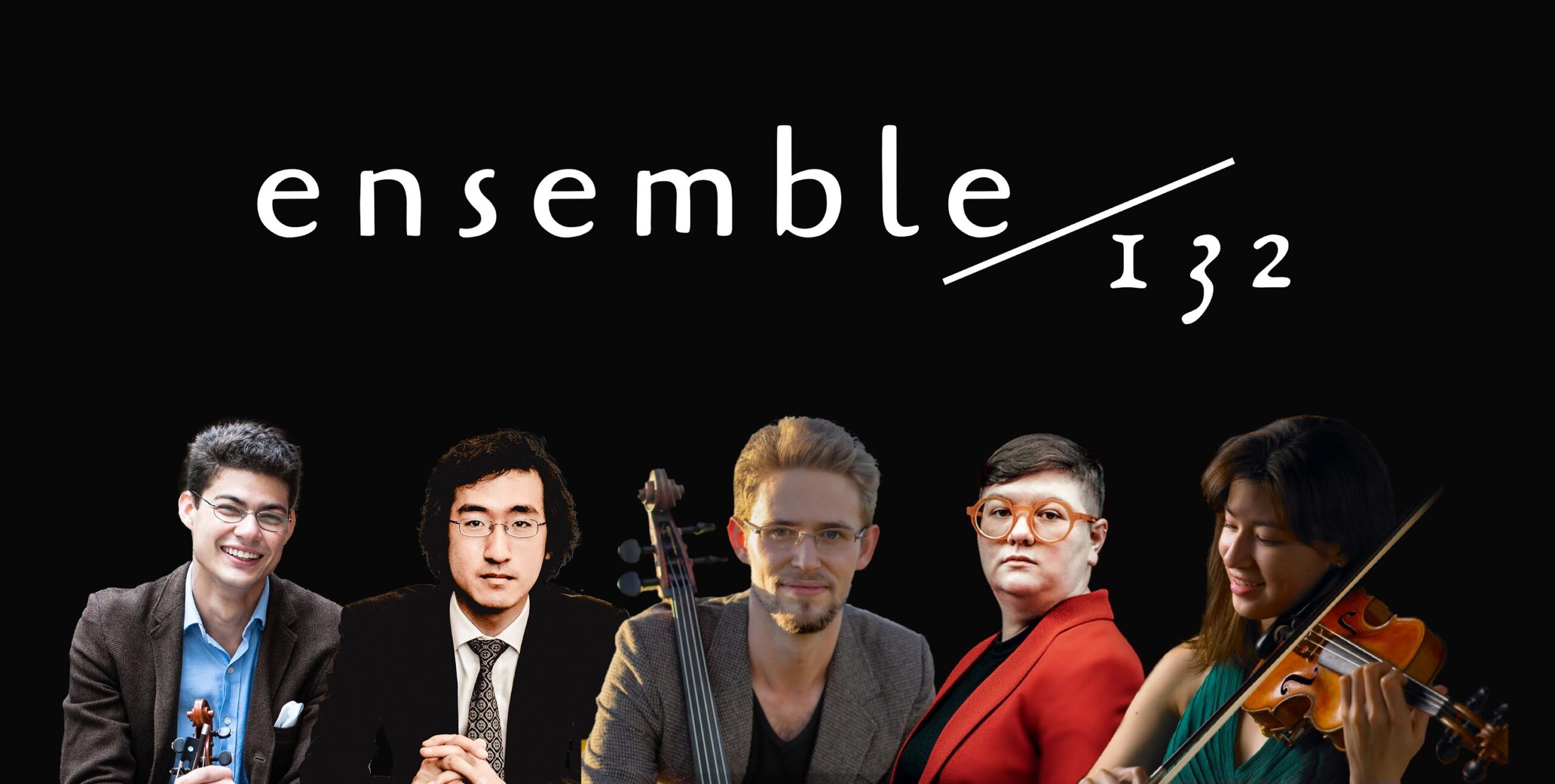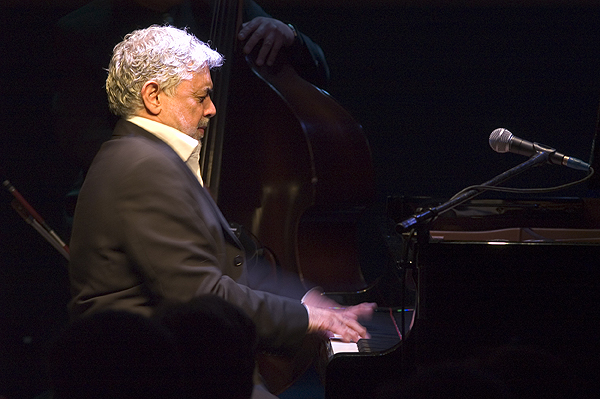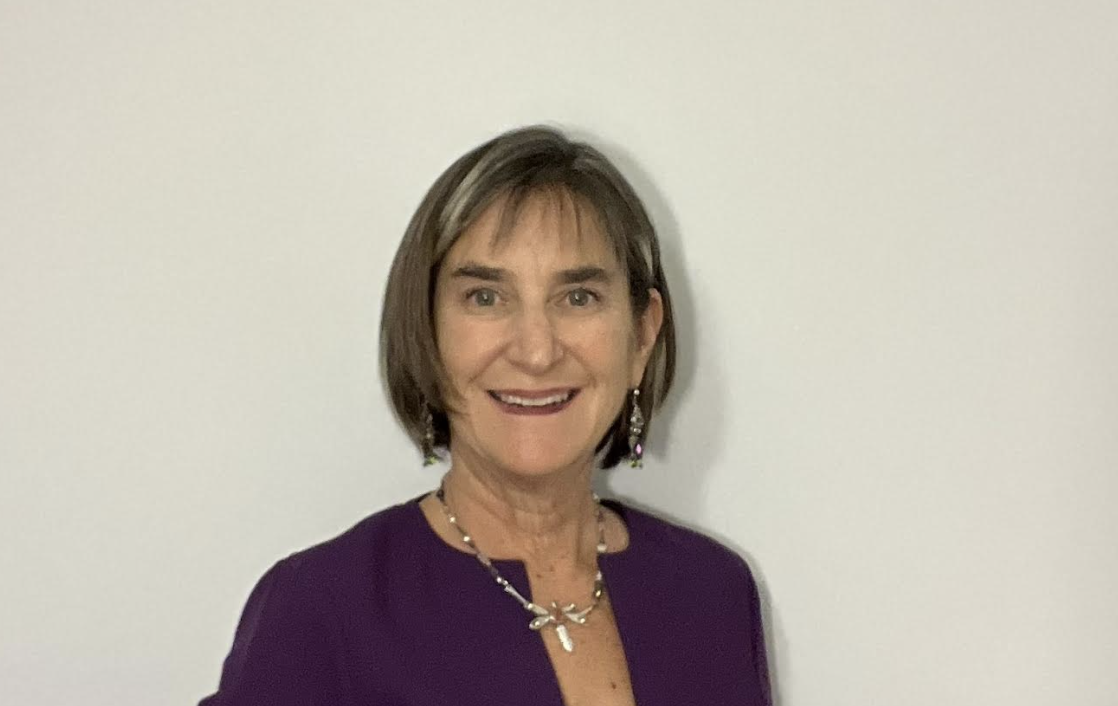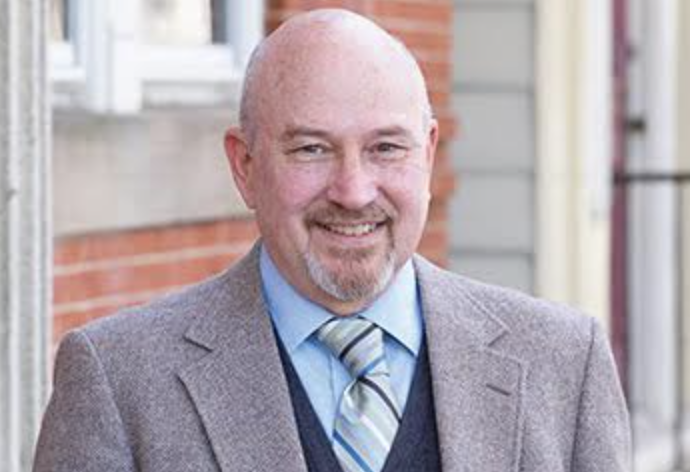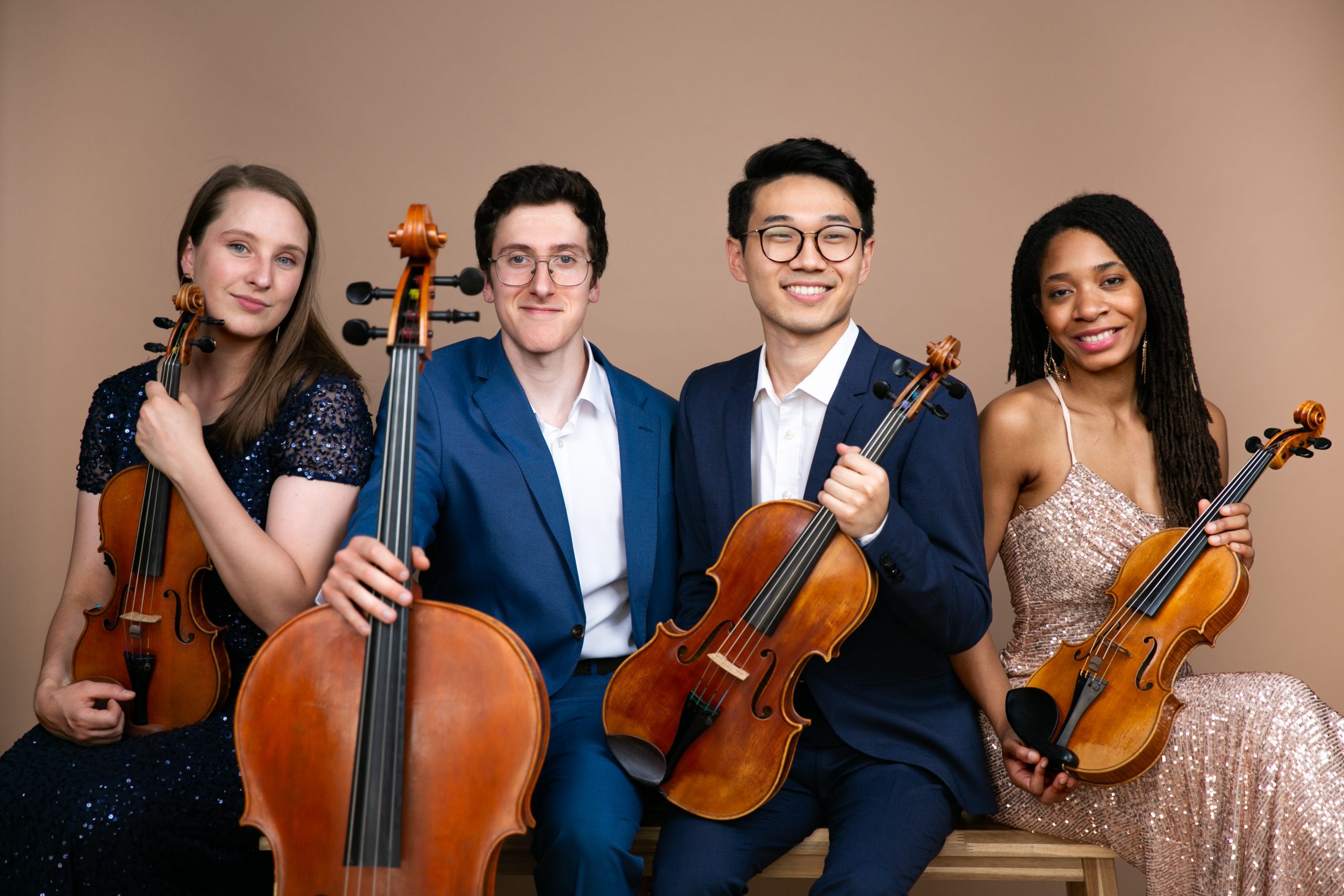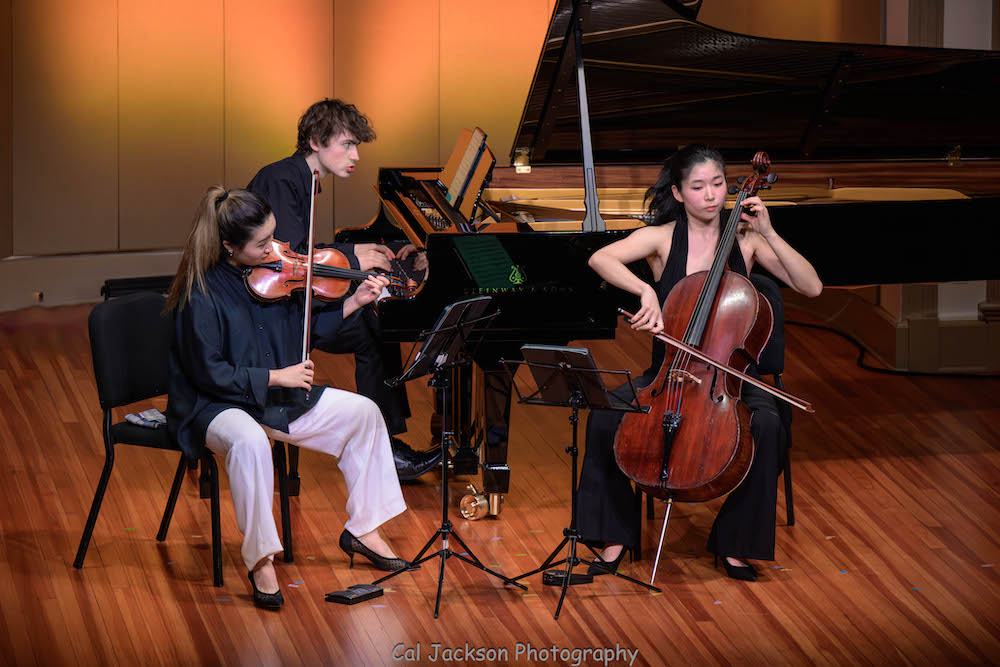
The Amara Trio of New York, New York Amara Trio. Members included Kevin Jansson, piano; Nagyeom Jang, cello; and Christina Nam, violin.
Finalists recently came from around the U.S. from distinguished schools and conservatories to compete at the 11th Biennial Chesapeake International Chamber Music Competition for Young Professionals at the Ebenezer Theater in Easton, Maryland. The Lerman Gold ($10,000) Prize was awarded to The Amara Trio of New York, New York. The Silver ($5,000) Prize was shared by The Hesper Quartet of New York, New York, and the PULSE Quartet of East Lansing, Michigan at Michigan State University. The Audience Choice Award ($1000) was also awarded to the PULSE quartet. Honorarium Awards ($1000 each) were awarded to the Kodak Quartet of New York, New York, and Trio Menil of Houston, Texas.
“The level of this competition was phenomenal! All five of the ensembles performed at an astounding level. They were all technically proficient and showed fantastic musical insight. It was a huge pleasure to hear all of the ensembles and making our decision was extremely difficult. What a privilege it was to share this experience with my fellow judges Robert McDonald and Tara Helen O’Connor. We all came out of the weekend humbled and inspired,” commented Marcy Rosen, Co-Artistic Director of the Chesapeake Chamber Music Festival, Head Competition Judge, and cellist. Preliminary judges included Catherine Cho, Laurie Bloom, clarinetist; Daniel Phillips, violinist/violist; Todd Phillips, violinist/violist; and Diane Walsh, pianist.
The Chesapeake Chamber Music Competition was the first competition for The Amara Trio, which was formed at the Kneisel Hall Chamber Music Festival during the summer of 2023. The trio found their experience with the competition to be very positive.
“The organizers have been so helpful every step of the way. They always wanted to make sure that we were taken care of at all times and we felt so welcome. It’s been a beautiful experience,” reflected Kevin Jansson, a pianist with the trio.
Nagyeom Jang, cellist, added, “The judges were very inspiring. It was a good reminder of how important mentors are for us as we move forward.”
The trio is extremely passionate about community engagement and they often share their love of music in the Mt. Sinai Hospital in New York and multiple retirement homes around the New York and New Jersey areas.
The Amara Trio is continuing their studies at the Juilliard School as an Honors Chamber Group, under the guidance of Laurie Smukler and Joel Krosnick.
The Hesper Quartet, a Korean-American string quartet formed in 2022 at the Emerson String Quartet Institute of Stony Brook University, enjoyed the comprehensive feedback from the judges.
“ I enjoy competitions to meet new people, for the audience, and getting new comments from people about our playing,” stated Sejeong Kim, violinist in the quartet.
“The judges also helped us look at how we interpret each piece of music. It was good to know that we are on the right track.”
Connor Kim, cellist for the quartet, added, “It’s rare to have a town with such a passion for music. Everyone was locked in on our playing and we appreciated that.”
Sharing the Silver Prize and receiving the Audience Choice Award, PULSE, an internationally award-winning saxophone quartet based in East Lansing at Michigan State University delivered a diverse repertoire that the audience enjoyed. According to the quartet, although the saxophone wasn’t invented until 1854 in Belgium, today a lot of contemporary and new music composers are starting to write for the saxophone.
“The judges enjoyed our communication and stage presence. I think we were having fun out there and that’s why we also got the Audience Choice award,” shared Michael Ethier, baritone saxophonist in the quartet.
The quartet has had a residency with Soundgarden at NPR. The goal of the project is to plant music in unexpected places and bring classical music outside of the concert hall to places that people may not usually hear it, including at gas stations, offices, on the beach, and in restaurants.
“The world of classical music is interesting as it’s very much the performer on one side and the audience on the other side. So this project is just trying to make classical music a little more accessible to the general public. The most common response from people was that they really did not know the saxophone could sound like it did,” Ethier added.
“We have found that audiences tend to be open to more contemporary pieces if we provide context and explain the piece. Painting that picture for them helps them get there,” Zachary Costello, soprano saxophone, shared.
“We’re very appreciative of both our host family and the community. It has been truly a unique experience. I couldn’t think of a more organized or more welcoming competition.”
The Amara Trio will perform again on June 14, at 7:30 p.m. as part of Chesapeake Music’s 39th annual Chamber Music Festival. The Festival will present six extraordinary concerts, June 7th through June 15th, at the historic Ebenezer Theater, 17 South Washington Street in Easton, Maryland. For complete program listings and to purchase tickets, go to chesapeakemusic.org.
The Chesapeake Chamber Music Competition is underwritten by the Talbot County Arts Council, the Maryland State Arts Council, and private benefactors.


